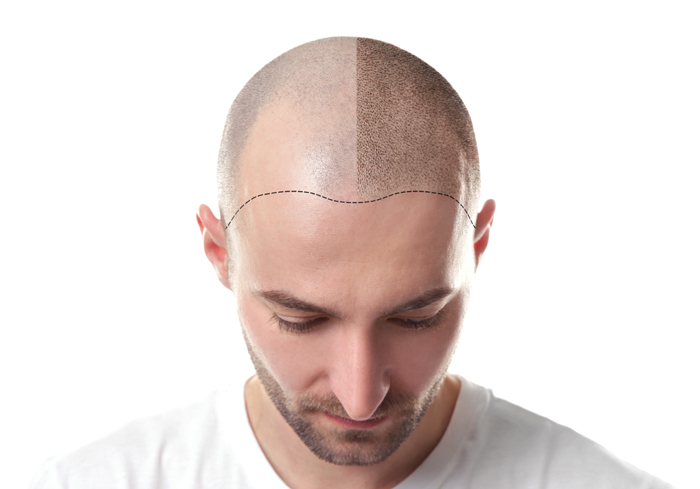Hair Transplant in Chunni-ganj, Kanpur
Hair loss or hair thinning occurs as a result of aging as well as due to a medical condition. The people who experience either condition choose to go for a hair transplant for different reasons.
Hair transplant is effective but it does not hold the power to reduce or stop future hair loss.
Hair transplant is done to restore hair growth in the areas where there is absent or limited hair growth.

How does the procedure for hair transplant take place?
At Apollo Spectra, Kanpur, two main techniques are used to perform the procedure of hair transplant by obtaining the hair follicles. They are:
- Follicular Unit transplantation: The surgeon cleans the scalp thoroughly. Using a small needle, he numbs the area of the scalp with local anesthesia. The surgeon then uses a scalpel to make an incision strapping the skin out of the back of your head.
- After the cut is made, the area is stitched. Using a sharp knife, the surgeon separates the strapped portion of the skin into smaller sections with a magnifying lens. These smaller sections are then implanted and are achieved for natural-looking hair growth.
- Follicular Unit extraction: Here, the surgeon makes thousands of incisions on the back of your head to obtain the hair follicles. Then, he makes tiny holes in the area which requires hair transplant using needles or blades. The surgeon gently places the hair on these holes.
The surgery generally takes four hours or more. They are then covered with bandages or stitches. These are not removed for at least 10 days.
Request an appointment at Apollo Spectra Hospitals, Kanpur
Call 1860-500-2244 to book an appointment
What are the different types of hair transplants?
There are two types of hair transplants. They include:
- Slit grafts: In this type, the larger grafts are sectioned into smaller grafts. The surgeon uses a scalpel blade and makes slits on the scalp. The smaller grafts of 10-15 hair are inserted into the slits.
- Micrografting: In this type, a small drill is used to remove the hair grafts and are inserted into the scalp which is strapped using a blade. These contain 1-2 hairs per graft.
What Are the Benefits of Hair Transplant?
There are benefits of getting a hair transplant which include the following:
- After the surgery, it ensures that you are not bedridden for many days. It allows you to resume everyday activities.
- The people who have natural hair growth and have lost hair due to an injury, it is proven a blessing.
- If the surgery is carried out properly, there will be no scars on your scalp.
- It requires less maintenance as opposed to non-surgical treatments.
What Are the Side Effects of Hair Transplant?
The side effects of hair transplants are not major. They get cleared within weeks if proper care and maintenance are done.
However, the side effects of hair transplant include:
- Swollen scalp
- Bleeding
- Bruising around the eyes
- Inflammation of hair follicles
- Itchiness
- Numbness around the transplanted area or scalp
Who are the right candidates for Hair transplant?
Getting a hair transplant might boost your self-confidence and make you look attractive.
The best candidates who are likely to get the hair transplant are
- People who have had a head injury that resulted in hair loss
- Women who have thin hair
- Men with male pattern baldness
However, on the other side, a hair transplant may not be a good option for the following candidates:
- People with thick or fibrous scars after the injury or medical surgery
- People who react to the anesthesia
- Those who are bald by birth
- People with HIV or Hepatitis C
- Under the age of 24
Conclusion
A hair transplant can be a suitable option for people who want to regain their self-confidence and improve their appearance. However, it is not considered a permanent solution.
Hair transplants generally last and people grow thicker hair. However, they may continue to thinning of hair if proper care is not taken. Generally, people have frequent hair transplants for long-lasting results.
Hair transplant surgery is performed using local anesthesia and intravenous sedation. This ensures that the surgery is carried out without pain.
Yes, it is very common. If frequent hair loss occurs over having a hair transplant, you can book another session of hair transplant with the doctor.
Symptoms
Our Top Specialities
NOTICE BOARD
CONTACT US
CONTACT US
 Book Appointment
Book Appointment


.svg)
.svg)
.svg)
.svg)








